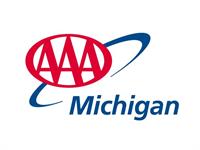
As drivers develop more experience and comfort using advanced driver assistance systems, they are also more likely to drive distracted while using the systems
DEARBORN, Mich., (December 17, 2019) — Drivers with experience using advanced driver assistance systems (ADAS) like adaptive cruise control and lane-keeping assist, were nearly twice as likely to engage in distracted driving while using the systems compared to when they were driving without the systems, according to new research from the AAA Foundation for Traffic Safety.
Alternatively, drivers with less experience and familiarity using the technology were less likely to drive while distracted with systems activated compared to when systems were not in use. AAA wants drivers to remember that while new driver assistance technologies offer important benefits, drivers must remain active and engaged when behind the wheel to maximize safety.
-1.png?width=150&name=unnamed%20(12)-1.png)
“This new research suggests that as drivers gain more experience using ADAS technology, they could develop complacency while behind the wheel,” said Dr. David Yang, executive director of the AAA Foundation for Traffic Safety. “Overreliance on these systems can put drivers and others in dangerous conditions during critical moments.”
Researchers at the AAA Foundation collaborated with Virginia Tech Transportation Institute to analyze video of on-road behaviors for two groups of drivers using advanced driver assistance technology. Individuals in one group owned a vehicle equipped with ADAS and had more experience using the systems while drivers in the other group were given a vehicle equipped with ADAS to use during the 4-week study period and had less experience with the technology.
The research found that drivers who owned their vehicles – and therefore had more familiarity with ADAS technology -- were more likely to drive distracted when these systems were active than when they were not. For example, some observed distracted driving behaviors included texting or adjusting the radio. Meanwhile, drivers with less experience using the technologies were more likely to remain attentive and engaged while the systems were engaged.
Virginia Tech researchers theorize that drivers move through different phases tied to experience using ADAS. First timers start in a novelty phase where they learn and test the technology. These drivers are less inclined to trust the system’s function and reliability, so they remain active and engaged while driving. Eventually, drivers reach an experienced user phase where overreliance and too much trust in the systems becomes more common. These drivers are more apt to take their eyes and attention away from the road. Research in other industries shows that pilots and nuclear technicians demonstrate similar patterns of over-reliance on automated systems. These behaviors can eventually lead to distraction.
“Advanced driver assistance technologies have a lot to offer in terms of comfort and safety, but they should never replace an attentive and engaged driver,” said Dr. William Van Tassel, AAA manager of driver training programs. “Remember, technology fails us daily while at work and at home. So, don’t get caught driving distracted when being focused on the road can save your life.”
AAA offers three simple steps for how to ACE your next vehicle rental or purchase:
- Always remain active and engaged when using ADAS technologies like lane-keep assist or adaptive cruise control.
- Commit to knowing what ADAS technologies are installed on your vehicle and how they work.
- Expect that the advanced driver assistance technologies in your vehicle have limitations.
About AAA Foundation for Traffic Safety: Established in 1947 by AAA, the AAA Foundation for Traffic Safety is a not-for-profit, publicly funded, 501(c)(3) charitable research and educational organization. The AAA Foundation’s mission is to prevent traffic deaths and injuries by conducting research into their causes and by educating the public about strategies to prevent crashes and reduce injuries when they do occur. This research is used to develop educational materials for drivers, pedestrians, bicyclists and other road users. Visit www.AAAFoundation.org.
AAA in Michigan celebrated its 100th Anniversary - A Century of Service in 2016 and has over 1.4 million members across the state. It is part of The Auto Club Group (ACG). Connect with us on Facebook and LinkedIn.
The Auto Club Group (ACG) is the second largest AAA club in North America. ACG and its affiliates provide membership, insurance, financial services and travel offerings to over 9.9 million members across eleven states and two U.S. territories including Florida, Georgia, Iowa, Michigan, Nebraska, North Dakota, Tennessee, Wisconsin, Puerto Rico and the U.S. Virgin Islands; most of Illinois and Minnesota; and a portion of Indiana. ACG belongs to the national AAA federation with more than 60 million members in the United States and Canada and whose mission includes protecting and advancing freedom of mobility and improving traffic safety. Motorists can map a route, identify gas prices, find discounts, book a hotel, and access AAA roadside assistance with the AAA Mobile app for iPhone, iPad and Android. Learn more at AAA.com/mobile. AAA clubs can be visited on the Internet at AAA.com.













